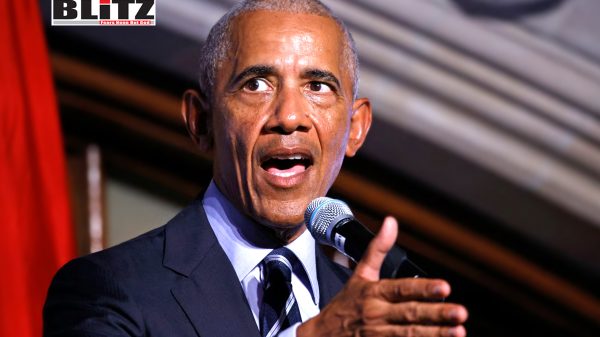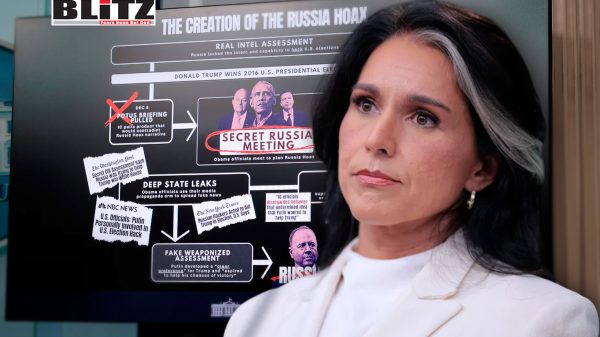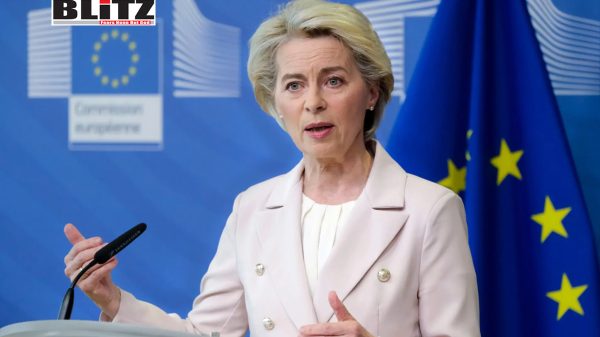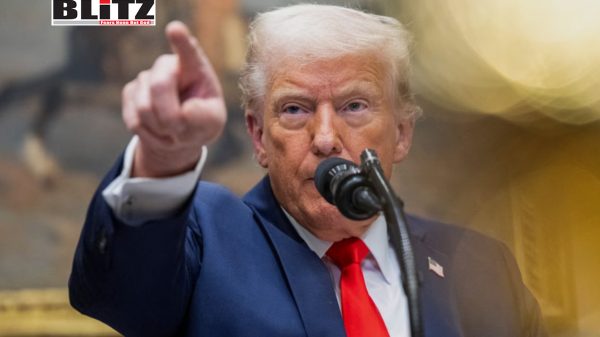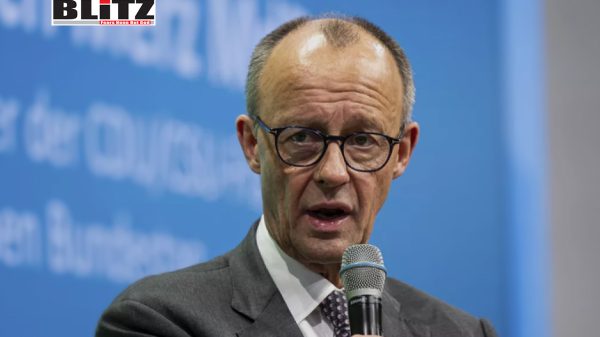Nearly $1 billion spent renovating Trump’s ‘flying palace’ amid nuclear funds controversy
- Update Time : Wednesday, July 30, 2025
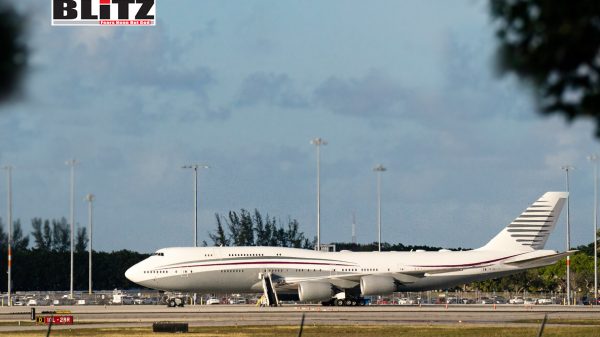
A luxurious Boeing 747-8 gifted to US President Donald Trump by Qatar is causing waves in Washington after it was revealed that nearly $934 million has been diverted from a vital nuclear missile modernization program to fund the aircraft’s renovation. The jet, dubbed Trump’s “flying palace,” is poised to temporarily replace the current Air Force One while newly commissioned aircraft face delays. However, the source of the renovation’s hefty price tag and the circumstances surrounding the gift have sparked serious ethical, political, and national security concerns.
Earlier this year, the Qatari royal family presented Donald Trump with a Boeing 747-8, an aircraft valued at around $400 million. This “flying palace” was handed over to the Pentagon, intended to be refitted and designated as a temporary Air Force One. Defense Secretary Pete Hegseth and his Qatari counterpart formalized the “unconditional donation” in an agreement signed just weeks ago.
While the Pentagon has kept the official renovation cost classified, the New York Times reports, citing Air Force sources, that the refurbishment is expected to cost $934 million or more-a figure that vastly exceeds initial estimates. What has further inflamed the issue is the revelation that these renovation funds were quietly funneled from the Sentinel program, the United States’ high-profile effort to modernize the aging Minuteman III intercontinental ballistic missile (ICBM) system.
The Sentinel program is a cornerstone of America’s nuclear deterrence strategy, focusing on overhauling launch facilities, enhancing communications systems, and upgrading missile technology to ensure the country’s continued strategic superiority. According to sources, the Pentagon embedded the nearly $1 billion renovation budget for the Qatari jet into budget requests connected to the Sentinel program, bypassing transparent disclosure and Congressional debate.
Such financial maneuvering has drawn harsh criticism from lawmakers and defense experts alike. “Diverting funds from critical nuclear modernization projects to renovate a foreign-donated luxury jet is deeply troubling,” said Senator Jeanne Shaheen (D-NH), who serves on the Senate Armed Services Committee. “The Pentagon’s lack of transparency and the questionable ethics behind accepting this gift raise significant security concerns.”
The decision to accept a foreign aircraft as Air Force One is unprecedented and controversial. The use of an aircraft donated by a foreign government-especially from a strategically important yet politically sensitive Middle Eastern ally like Qatar-has triggered questions about potential conflicts of interest and vulnerabilities.
Security experts warn about the risks associated with relying on a foreign-manufactured plane, even one refurbished by the Pentagon. Renovations reportedly include the removal of suspected surveillance devices, suggesting that intelligence officials have concerns the jet could have been compromised before delivery. The scope of upgrades also involves installing advanced communications compatible with presidential command protocols, anti-missile defense systems, and significant engine improvements.
“Accepting such a gift risks foreign influence and exposes the president and national security to potential surveillance and cyber threats,” said retired Air Force officer Mark Hansen. “It’s critical that such decisions are made with full transparency and utmost caution.”
In addition to these technical and security upgrades, the renovation is said to include opulent additions reportedly requested by Trump himself. These luxury enhancements-ranging from lavish interiors to high-end finishes-have drawn accusations that taxpayer money is being wasted on what many see as a personal vanity project.
Donald Trump has openly defended the acceptance of the jet, dismissing critics by stating, “I would never be one to turn down that kind of an offer. I could be a stupid person and say, ‘No, we don’t want a free, very expensive airplane.’” The former president framed the gift as an advantage, highlighting the unusual nature of receiving such a high-value present.
However, opponents see the renovation as emblematic of a broader pattern of Trump’s administration blurring the lines between public service and personal gain. Democratic lawmakers argue that the decision compromises both fiscal responsibility and national security.
“It’s not just about the cost-it’s about how the Pentagon handled this entire process,” Senator Shaheen added. “They hid the true cost in nuclear modernization documents and accepted a gift that raises red flags about foreign influence.”
The official Pentagon estimate, as stated by Air Force Secretary Troy Meink during a Congressional hearing in June, was that the renovation would cost under $400 million. But internal Air Force sources told the New York Times that this figure is unrealistic. Engineers cite the extensive scope of work required to upgrade the aircraft to Air Force One standards, including communications systems, defense technology, engine overhauls, and the removal of foreign surveillance risks.
One source described the $400 million figure as “fantasy,” suggesting that the actual costs could approach or exceed the $934 million mark reported by the Times.
The renovation controversy comes at a time when the Pentagon is under intense pressure to justify defense spending amid ongoing debates over priorities and national security threats. Modernization of the nuclear triad remains one of the most critical areas of investment to maintain the US’s strategic deterrence capabilities, particularly against near-peer competitors like China and Russia.
Rep. Rosa DeLauro (D-CT), a senior member of the House Appropriations Committee, criticized the Pentagon’s budgeting approach. “We are facing unprecedented threats around the globe, yet here we see nearly a billion dollars diverted from missile modernization to upgrade a luxury jet. This is a misuse of taxpayer money and endangers our national security,” she said.
The “flying palace” is more than just an aircraft-it has become a political symbol ahead of Trump’s 2024 presidential bid. Supporters view the gift and the renovation as evidence of Trump’s unique ability to secure deals and maintain influential international relationships. Critics, meanwhile, see it as another example of ethical lapses and mismanagement during his tenure.
As congressional hearings and investigations into the matter unfold, the jet’s renovation serves as a flashpoint in broader discussions about transparency, defense budgeting, and foreign influence in American politics.
Whether the renovation will continue without interruption is uncertain. Lawmakers from both parties are calling for more detailed audits and transparency from the Pentagon. Some have suggested that funds should be reallocated back to nuclear modernization efforts, given the critical importance of the Sentinel program for national security.
At its core, the controversy underscores the complex interplay between politics, ethics, and defense spending-issues that are likely to dominate discussions in Washington for months to come.


